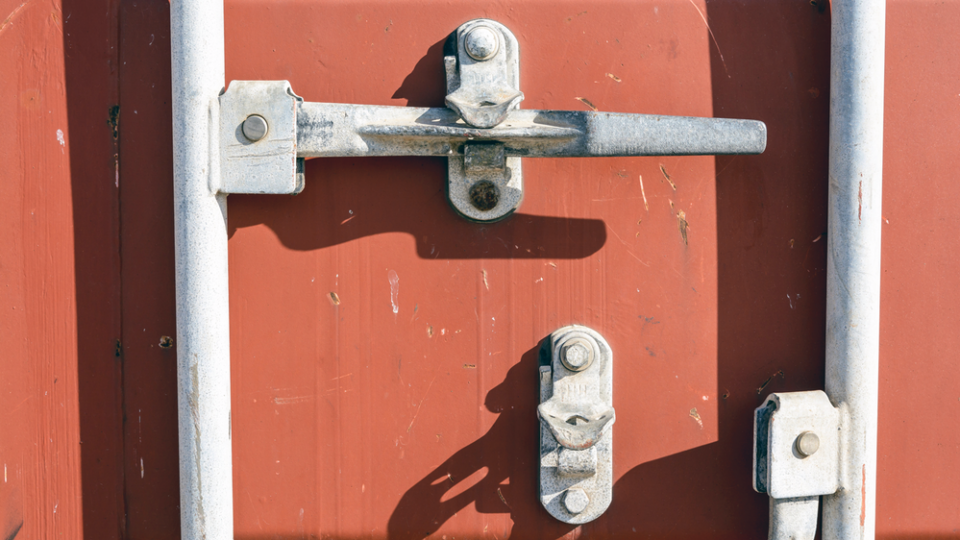Story by
Johnny Mccord
Tags /
- Cargo
- Cargo Theft
- Freight

Ah, the first long summer holiday weekend.
While I know many are thinking ahead to their festive family BBQs—perhaps the first in a long while—those who operate in the U.S. freight industry are bracing for the coming spike in cargo theft.
And, this one could be ugly.
With the economy opening up and lots of high-value freight about to hit the highways, crime syndicates are tasting opportunity.
As you might expect, food and beverage are high on their target list—especially those grill-out must-haves, like meat, seafood, and alcoholic beverages. CargoNet has also raised the alarm about electronics—noting the risk will be especially high as these loads move through California.
Certainly, there are lots of cargo theft prevention strategies carriers can employ to reduce the risk of loss—from leveraging hidden tracking devices and high-security locks to putting a solid 250 miles of distance between pickup and first stop and parking in secure, well-lit areas (obviously, a mighty scarce resource).
Likewise, brokers and shippers would be wise to vet carriers through the FMCSA—working only with licensed carriers—while shippers can further mitigate their risk by verifying truck, driver, and pickup confirmation numbers and confirming drivers who raise suspicions with their broker or carrier.
Okay, so how can you protect your business against the financial impact of cargo theft?
Your chances of recovery aren’t exactly promising. Police departments are overstretched and cargo theft sits awfully far down on their priority list. With little in the way of resources to investigate, it usually falls to insurers to pick up the pieces.
So, to begin, be sure you’re very familiar with your cargo policy—review your coverage limits and exclusions closely.
Is there a gap in coverage? Be sure you increase your limits and broaden your coverage so that if you do experience a loss and someone’s going to take a hit—that someone isn’t you.
Okay, so you’re one of the unlucky ones—you’ve fallen victim to pilferage, a fraudulent pickup, or the outright theft of a loaded trailer.
How can you set yourself up for a successful cargo claim and speed your financial recovery?
Here are some quick tips:
- Shipping freight? Fully inspect the load before pick up and document the inventory and condition of the cartons. Don’t give someone further down the line the opportunity to cast blame on a pre-shipment issue where there was none.
- Receiving freight? Inspect the load before you sign the delivery receipt and ensure all of your expected inventory is there. Writing “subject to inspection” does not protect you in the event of a claim, so be careful that you don’t skip this very important step.
- Load looking a little light? Document any shortages and damage to cartons on the delivery receipt—and be as specific as possible.
- Has your trailer been outright stolen? Call law enforcement immediately and obtain a police report. This documentation is essential evidence of theft and will speed up your claims approval process.
- Has a carton been opened and re-taped? Then, pilferage has most likely occurred. Just as you would with a damaged shipment, retain the carton and its contents for inspection—this is critical evidence in support of your claim.
- Complete your Employers Non-Ownership Liability (ENOL) form ASAP and provide all of your relevant information and documentation—this will help accelerate your claims process.
- Give the attending surveyor your full cooperation. Remember: They’re there to help you recover quickly.
- Pay your freight bill. There’s a misconception out there that if you don’t pay your freight bill, you’ll have some leverage—but this actually holds up the process. Claims and freight bills are two entirely separate things, and a claim does not preclude customers from paying their freight charges.
- Throughout, remember—if it’s not documented, it didn’t happen.
Time, date, location, the condition of the trailer or cartons: After an excellent cargo policy, your thorough notes, invoices, photographs, and more are your best protection.
For those of you in the States—and everywhere—here’s wishing you a quiet weekend that greets you with nothing but laughter and tasty grilled sausages.